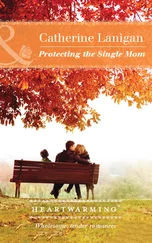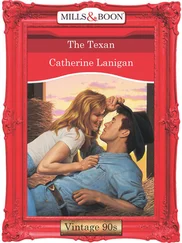“I know, dearie. I know. You gotta run.”
“I do,” Sarah said, sliding into the car.
“When you get home tonight, I can help you fill that hole back up. Perfect place for a start of my peonies,” Mrs. Beabots offered.
“I just don’t know what possessed him to dig like that,” Sarah said. “Beau has never been a digger.”
Mrs. Beabots turned her thin face toward Sarah’s backyard. “Could have been the fact that last night when Beau came home with that dead squirrel, you tossed it over the fence into the old Samuels’ yard.”
Sarah shuddered as she remembered when she’d let Beau out just before her bedtime. She had been preoccupied with her presentation and last-minute adjustments to her drawings, and hadn’t realized Beau was taking an abnormal amount of time outside. As always, she’d left the kitchen door half-open, and when he came in and pushed it open all the way with his snout, Sarah had turned around in time to see a dead squirrel, stiff with rigor mortis, clamped between Beau’s jaws. Off her chair in a shot, she whisked a kitchen towel off the countertop, threw it over Beauregard’s face and wrenched the squirrel from the dog. She shrouded the dead animal in the towel and immediately went out to the backyard. It was a new moon, black-as-pitch night, but Sarah knew exactly how many paces it was to the north side of her yard, where a six-foot high, white-wood fence separated her property from the Samuels’ estate. With one mighty swing of her right arm, she heaved the dead squirrel over the fence.
Turning around, she found Beau standing directly behind her. If she hadn’t heard his loud panting first, she would have fallen over him.
“Don’t ever do that again, Beauregard Jensen,” she warned with a wag of her finger and a steep arch to her eyebrow. Not that he could see her expression in the dark.
Sarah grabbed his collar and yanked him toward the house. She remembered now that on the way back, Beauregard had paused and looked back at the fence. It wasn’t until she shouted his name and gave his collar another tug that he followed her obediently.
Sarah knew now that Beauregard had started plotting his strategy for retrieval at that very moment. She wondered if he’d thought about it all night.
Sarah looked back at Mrs. Beabots, who was patiently holding her arms at her sides, the skirt of her black-and-white-polka-dot dress fluttering around her legs. “That house has been vacant for two years. I didn’t think anyone would mind,” Sarah said glumly.
“You shoulda buried the squirrel out of Beau’s sight.”
“Why?” Sara asked.
“Because, pumpkin. That critter was his prize. Dog’s always gonna go for his prize. He’s a retriever.” Mrs. Beabots smiled her thin smile and nodded.
Sarah watched after the little bird of a woman who’d always been not only observant but wise, and somehow invariably managed to make certain she had the last word.
* * *
LUKE BOSWORTH WAS lost in thought as he drove his children—Annie, his eight-year-old, freckle-faced, redheaded daughter, and his six-year-old son, Timmy, with the bright blue eyes—to school.
“Can we go all the way down Maple Avenue, Dad?” Annie asked.
“Why?”
Annie looked out the window and gazed at the majestic, hundred-year-old sugar maples for which the street was named. “I love it. It’s so beautiful this time of year, with all the tulips blossoming. My favorites are the pink ones.”
Timmy gave her a dismissive wave of his hand. “Aw, Annie. All the tulips on Maple Avenue are pink.”
“I know.”
“It’s okay,” Timmy said, sitting up straighter as they turned off Main Street and onto Maple. “I like all the big houses. I bet the people who live here are really rich.”
Luke heard his children’s chatter as if their words were being spoken under water. They were playing one of their favorite games, where they picked out the “happiest” house.
He barely glanced at the tall “Painted Ladies,” the historic Victorian houses painted in pinks, purples, yellows and bright greens. These houses were painted in bright colors during the era when heavy smoke billowed out of the factories in Chicago and steel mills in Gary. The prevailing winds coated the huge homes in Indian Lake with soot, and the bright colors became subtle from grime and pollution.
He frowned and rubbed his aching forehead as they drove past a three-story Italian stucco house with French doors and huge windows.
“That’s my favorite,” Annie said, pointing at the windows. “Do you like it, Dad?
Luke wasn’t exactly paying attention, so he grumbled, “Hmm.” He continued diving deeper into the sea of thoughts about his wife, Jenny.
It had been two years, three months and six days since Jenny died, and Luke felt as if he’d died with her.
The autumn when he and Jenny had first discovered Indian Lake on a weekend trip from their home near Chicago, Jenny had walked up and down Maple Avenue pretending she was house shopping. She chose over half a dozen houses that she liked. She would have loved to raise their children in one of these fine, old homes.
But that was then, Luke thought as he glanced back at the Italian stucco house. Whoever these people are, they’re better off than I am.
Luke worked as a construction supervisor at a midsize company in town. For four years, since their move to Indian Lake, Luke had been making good money. Because Luke was a former Navy SEAL, with more than one decoration for valor in combat in Iraq, Jenny had urged him to apply for the GI Bill loan to go after an architect’s degree at Indiana University-Purdue in Fort Wayne. All their plans were dashed in a single day when Jenny got sick. Very sick.
The doctors told Luke and Jenny that the tumor in her brain was malignant. Inoperable. Terminal. The words still sounded like shotgun blasts. Each time he thought about that day, those words, Luke’s head jerked back from the onslaught.
The doctors gave Jenny four months to live. Neither he nor Jenny believed them. They fought back with chemotherapy. They enrolled in an experimental program that administered a new drug right to the brain. It didn’t work. Jenny lived six months. She had bought two more months than the doctors had predicted, but their prognosis was still the same. Jenny’s time with Luke was flat-out too short.
It was entirely his fault that Jenny died. If he’d been wealthy, he could have flown her to Europe, where doctors were open to alternative treatments for brain tumors. He should have insisted on seeing an herbalist and nutritionist who might have bought them another six months or a year to find a cure. But the cancer overtook Jenny with a vengeance until it finally took her away from him.
Luke had been more than angry at the universe since that day in the hospital when he yelled and sobbed and shouted at the nurses to leave him alone with Jenny’s body. He’d held her for hours, watching her turn gray in his arms. He’d been inconsolable. He still was.
He went through his days in a fog, unable to think or respond to his own children. There were times he wished he and Jenny had never had kids. They were always coaxing him back to the present, to the place he wanted to deny. As long as he lived inside his memories of Jenny and the magical love and life they’d shared, he believed he would be saved. She was his savior and his lifeline to sanity. Luke was as helpless and hopeless without Jenny as he’d been two years, three months and six days ago.
Even now, he could hear Annie’s voice, prying its way into his inner sanctum of memories, but he didn’t know what she was saying. He should pay better attention, but when he did, a burning in his gut ignited and visions of Jenny beckoned him back to the peaceful past.
Читать дальше












